Why use a digital collection?
Reading comes in many formats, and each offers a unique benefit to readers. While a well-stocked physical library will always remain invaluable to school learners, digital resources help to expand and diversify the way in which students can engage with reading.
Digital ebooks and audiobooks offer additional advantages beyond merely catering to students who prefer to read on a digital screen.
This blog, sponsored by our ebook partners, OverDrive, and written by Ros Harding (SLA School Librarian of the Year 2019) explores why schools should embrace a comprehensive approach to their library offering, which encompasses physical books, ebooks, and audiobooks to truly support emerging readers.

While working as a school librarian, I would sometimes get staff ‘admitting’ to me that they had bought a Kindle or were accessing audiobooks through their public library, as if I would be cross with them for not reading ‘real books’. Apart from wondering why they didn’t just use the school’s digital library, I also wondered why they thought I would be bothered by this. Where did they get the idea that reading off a screen or listening to a book wasn’t ‘real’ reading?
Of course, the ideal situation is for a school to provide access to a physical and digital library. After all, choice is one of the most important things that we can offer young people when we’re trying to engage their interest in reading. However, there are things that a digital library can provide for readers beyond just a preference for reading from a screen.
Privacy
For some young people, the almost complete privacy that digital reading (or listening) provides can be absolutely crucial. This desire for privacy could be because their peers don’t see reading as ‘cool’, it could be that they struggle with reading or it could be that they don’t want any judgement about their choices of book (LGBTQ content for example). They can be listening to an audiobook while others think they are listening to music or just read without others seeing the cover. And, with no need to chase overdues, a librarian or teacher will never need to break this privacy.


Access for Additional Learning Needs
Within Sora, readers can choose to apply a dyslexic friendly font to almost all books, as well as changing the background and the size of the text. There are also audiobooks and ‘read-alongs’ as well as comics and graphic novels, all of which can open up a world of stories to children and young people with additional learning needs. I always suggest that the SEN or ALN department are made aware of the features within Sora so they can explore them with the pupils they work with.
Easy access for time-limited students
We all know how many demands there are on young people’s time, and this is one of the reasons that we often see a drop-off in reading for pleasure during the GCSE years. However, because they can access a digital library on the one thing that a teenager always has with them, it makes it much easier for them to read for 5 minutes while waiting for a friend, or listen to an audiobook while travelling to school etc. I live by the mantra of always having a book with me, but this is much easier to stick to when I can have the choice of 1000s of books through my phone.


Data and rewards
We’ve all had that situation of being faced with a pupil who claims to have finished a book and you’re not quite sure whether to believe them. (Have they read it? Have they watched the film? Has their friend told them about it?) In most circumstances, it’s only themselves they’re cheating, but if you’re giving rewards for reading or running an intervention group, it can be frustrating. On Sora, you don’t just see whether a student has checked out a book, but also how long they’ve spent reading (or listening to) it, whether they’ve completed it etc., so the data you can collect is much more robust. Students can also earn achievements for e.g. reading specific genres, which has a lot of appeal for some children, as well as being able to form part of a reward scheme in schools.
These are just a few reasons why I think a digital library is an essential part of library provision within schools, and I would also say that as a librarian, it also allowed me to provide access to a wide variety of books, including those that I knew only a few students would want, without them taking up valuable shelf space!
Ros Harding, School Librarian of the Year 2019
OverDrive
OverDrive ebooks
A cost-effective ebook solution for schools
Enrich and diversify your library collection with OverDrive, a cost-effective ebook and audiobook solution that encourages even the most reluctant readers to read for pleasure.


